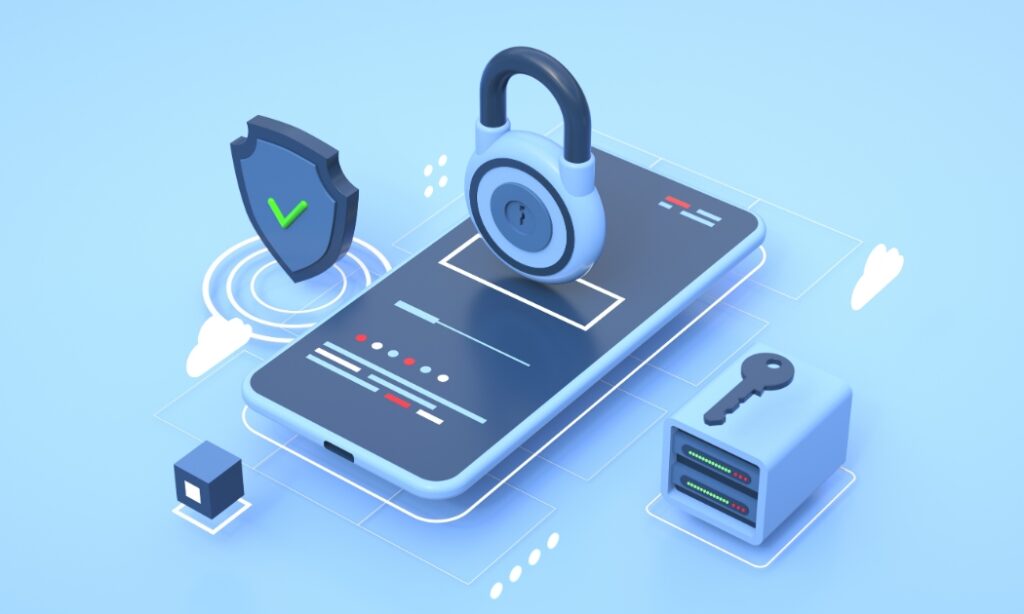Office security is incredibly important. Keeping your data safe is, as everyone knows, vital to remaining in business. All it takes is one cyber breach to bring your company down, no matter the size of your business. However, there’s a second benefit that many people don’t realize: office security can actually improve your business efficiency. By following security best practices, you’ll find that your business runs more smoothly and that your employees are able to get more done.
Let’s take a look at a few different wants quality cybersecurity can improve your office’s efficiency.

#1 Strong Security Reduces Downtime
Does any business want to experience any type of unnecessary downtime? The answer is a resounding no. When you have strong security that locks down your network, you won’t have to worry as much about ransomware or malware locking down your system. Ransomware is a serious risk because it can lock you out of your entire network, preventing you from accessing any applications or data until you pay the demanded ransom. Worse, in most cases, paying the ransom doesn’t get you anywhere. The creators of the ransomware are under no obligation to release your data, and many don’t. They take your money and run, leaving you without an operatable network or vital data.
With strong security, you’ll be able to avoid the dangers of ransomware and other types of malware, so you won’t be locked out for hours, days, or even weeks. You also won’t have to worry as much about your data being stolen. When a breach occurs, businesses often have to redirect multiple departments to deal with the fallout. Strong security means your teams are able to focus on their daily tasks, not an emergency caused by hackers, viruses, or other malware.

#2 Automatic Critical Updates
Updating your software, especially your operating system and security programs, is vital to keeping your office computers and data safe. Security vulnerabilities exist in many applications, even after rigorous testing. These vulnerabilities give hackers a backdown into your system, so you need to make certain they’re patched as soon as a patch becomes available. Waiting even a day or two can be disastrous. Don’t forget to update your drivers, too. In addition to making certain that your hardware works correctly, updated drivers can also affect your office security.
Updated software can also be more stable, leading to fewer crashes, or add new features. This allows your employees to work with fewer interruptions, improving their efficiency. New features can make work easier or even automate certain tasks.
The best way to update your software is to turn on automatic updates. This way, the software will regularly check for new patches and install them whenever one is available. Make certain this option is turned on, and check it regularly to see if it has been turned off. Viruses and other malware often disable automatic updates as part of their initial attack.

#3 Employees Must Be Trained on Standardized Security Processes
Education is incredibly important when it comes to office security. If your employees don’t know how to recognize and avoid phishing emails, for example, they can easily open the door to all of your data. The best security applications in the world won’t do you any good if your employees are doing things that allow malware and hackers to bypass that security.
Your employees need to be trained on standard security processes so they know how to protect your data. They need to know how hackers and other malicious individuals can get into your network and what they must do to prevent that. More than simply making them memorize processes, though, you need to emphasize why security is important. If employees think you’re just forcing them to follow some random security process, they may ignore it. Let them know exactly what the process does and why that’s important.
How does this make your office more efficient? When employees are trained on security, they know how to recognize threats and neutralize them. They know what to report to your IT team and when they should do so. This leads to the same benefits as point one above: fewer cyberattacks, which means less time and fewer resources have to be spent in combating them and dealing with the fallout.

#4 Have a Comprehensive Personal Device Policy for Employees
Do you know how many of your employees connect their own laptops, tablets, or smartphones to your office network? These devices can serve as a door into your system, especially if you have no Bring Your Own Device (BYOD) policy in place. Employees can easily pick up malware and viruses on their personal devices that they carry behind your firewalls and other defenses, leaving you open to attack.
The best rule is to simply state that employees cannot connect personal devices to your network. Another option is to offer a guest network that is separate from your main network. This guest access may provide employees with internet, but it shouldn’t allow them to access applications or any data.
Again, this is an area where an explanation is needed. Your employees may feel that you’re being unfair or too harsh if you simply ban personal devices. Educating them on why this is important will help them understand why this policy exists and why it’s important they follow it.
Let 911 PC Help Assist You with Office Security
Need some help with your office security? 911 PC Help is here to assist you with everything from writing a strong BYOD policy to setting up automatic patch updates. Reach out today to learn more about how we can help you with everything from the cloud and managed IT services to cybersecurity and data protection.

